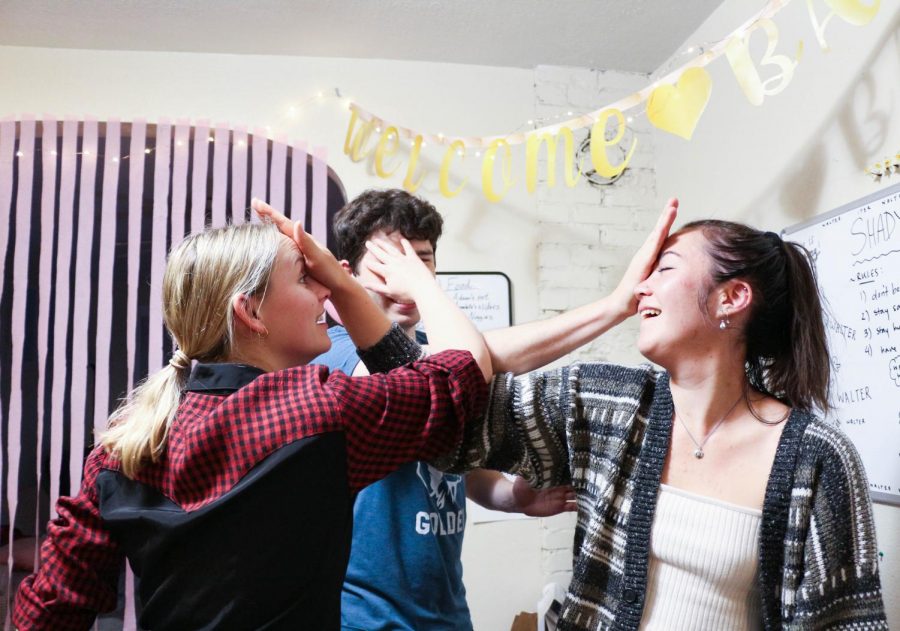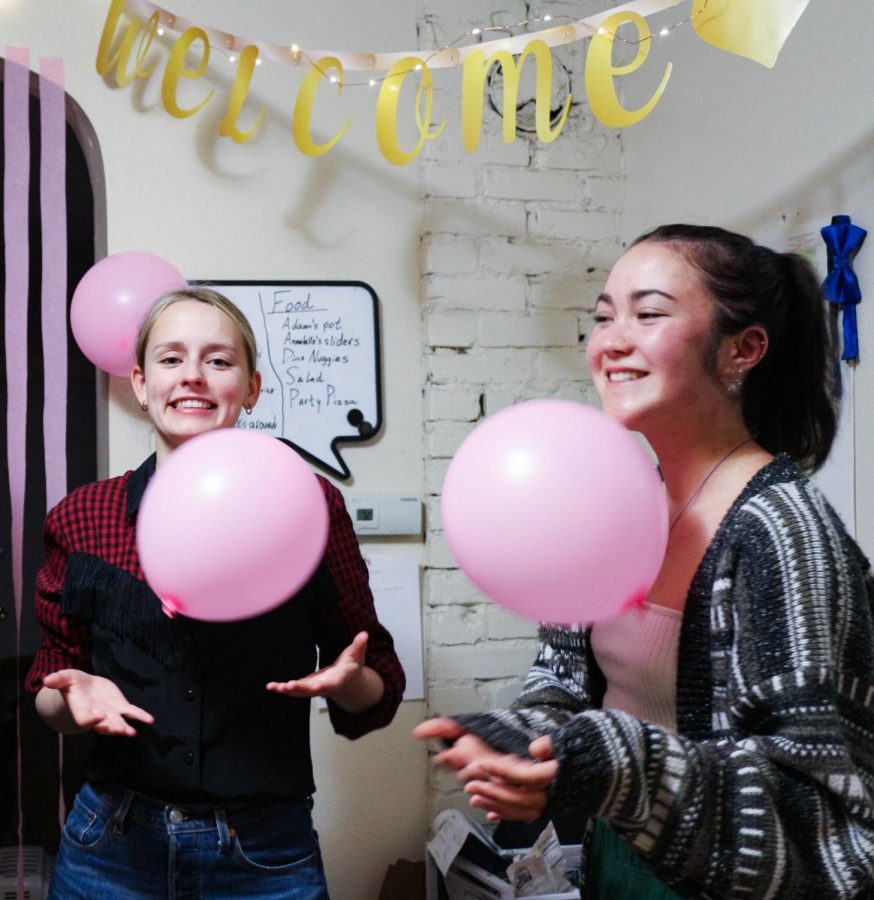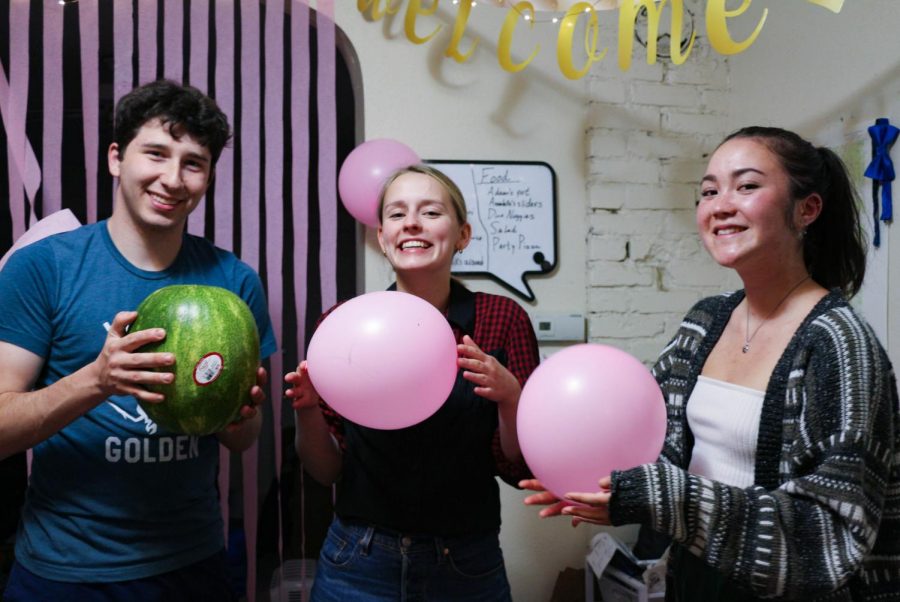Seniors cope with finishing final requirements virtually
May 13, 2020
As the Class of 2020 reconciles with their last few weeks at Whitman, they are also finishing their final assessments under completely unexpected circumstances. Social distancing and online distance-learning have tinged their concluding experience with a sense of loss.
Senior studio art major Ellen Ingwerson describes how the move to online distance-learning has drastically impacted senior art majors’ final projects.
“All of our work has gone in different directions,” Ingwerson said. “Some people have had to leave and then fully abandon their work because they couldn’t transport it home. Some people had to leave their work in their studios because they went away for spring break and then when they came back — if they came back — they either couldn’t access it immediately or had to take it apart and find another solution wherever they were staying.”
The resources that were available at the Fouts Center for Visual Arts were essential to all of these projects. With the end of the semester in sight, all senior art majors had to reconceptualize and modify their work in some way. In addition to the loss of resources at Fouts, for some, the space itself was a fundamental aspect of their final project and the presentation of it.
“I know that some people had their own rooms in the gallery and so that space was so important to them because it’s about the environment that they’re creating. One [senior art major] was going to do a live performance and she was going to be in that space and that space was so ingrained in how someone would feel walking into it,” Ingwerson said. “All of our work was kind of made for the specific installation so when you take that away, you’re left with work that’s half done and will be half complete.”
Ingwerson felt fortunate that her final project was digitally-based, but it was also subject to reworking. Her sense of loss is tied to the expected – and now impossible – installation of her piece and the meaning behind such a presentation.

“There is this idea of what it means to have your final work in the gallery with all your friends and family and professors together and it is kind of this grand opening and finale,” Ingwerson said. “Not being able to showcase that feels like maybe your work isn’t worth what it was – which is not right … What it meant to have a space and show our work and be proud and share space with people, almost to thank them, and to receive thanks and to showcase what four years have built-up. At first, and still, it’s devastating not to have that.”
Senior sociology major Kyle Levin agreed that the expectations of his senior year and final assessments were undermined by the sudden changes.
“Turning in my thesis like any other paper I did at Whitman was underwhelming and it was sad to know that the sociology workroom was not where I would be taking my orals,” Levin said. “This is not to say that the professors and the school haven’t been accommodating, but all of the rituals of senior year that I was looking forward to are kind of lost.”
These drastic changes in the operation of final assessments have left many seniors with a loss of motivation.
“Luckily, before the quarantine started my thesis was pretty substantial, but definitely forcing myself to do all of the necessary work to complete the thesis was really difficult,” Levin said. “I felt like I was dragging my feet editing or even putting in an hour of work in. The accommodations that the department provided were more in terms of support and reaching out to make sure all of us were okay.”
The equipment and space that online learning demands have raised concerns over the equity of such a learning system as students may not have access to the same resources that are available on campus. As Levin mentioned, many departments are providing students support in a variety of ways.
Ingwerson discussed how Fouts has been active in offering assistance to their students as best as they can, including scheduled installations for students who are still on campus.
“Fouts has given resources and has been on top of [asking] ‘what do you need?’ They’re open to conversation but, in the end, we’re all trying to figure it out,” Ingwerson said. “It has been nice to go through it together and feel 100% supported along the way.”
Instructional and Research Services Librarian Emily Pearson spoke on how these concerns of inequity are influencing the submission of honors theses and what resources the library has made available to aid in closing this gap.
“I am worried about how inequity is affecting who receives honors this year, but the only thing the library is able to have a role in is supporting students submitting their theses to us, which is a final step to receiving honors once departmental requirements have been passed,” Pearson said. “Students with limited access to technology or time may face extra challenges in preparing their thesis. We’ve tried to create a lot of different resources early to help manage this process and reduce the amount of time and labor that could go into formatting, which hopefully can provide some relief.”
Associate Professor of Sociology Gilbert Mireles spoke on his initial apprehension and experience in administering oral exams virtually.
“I always think that face-to-face exchange is better for these sorts of interactions. However, I feel confident that the process worked extremely well given the circumstances. It really works. I think this can largely be attributed to close communication with students to ensure that they were making progress on the thesis and that they had everything they needed to successfully navigate the thesis writing and oral exam process,” Mireles said. “The only thing we can’t do is give a celebratory hug, handshake or fist bump at the end of the exam.”
Senior biology major Maggie Chang took her writtens and orals before spring break, but she had to alter other aspects of her final presentation. She echoed Mireles’ agreeable experience with this new assessment structure.
“For my final thesis presentation, I had to upload a pre-recorded presentation instead of presenting live. The professors did a good job of providing the proper tools to do so, so it wasn’t too much of a hassle,” Chang said.
Ultimately for these seniors, one of their biggest losses is their last couple of months on campus among the Whitman community.
Chang discussed how she has contended with this reality.
“Of course all the seniors would have rather spent their last few days of undergrad together. I never thought I wouldn’t be able to see my entire four years at Whitman through. However, it is a situation that is bigger than us — nothing has been asked of us that isn’t reasonable,” Chang said. “My professors really have been super supportive and understanding, and I can see that they put a lot of effort into our online transition.”






